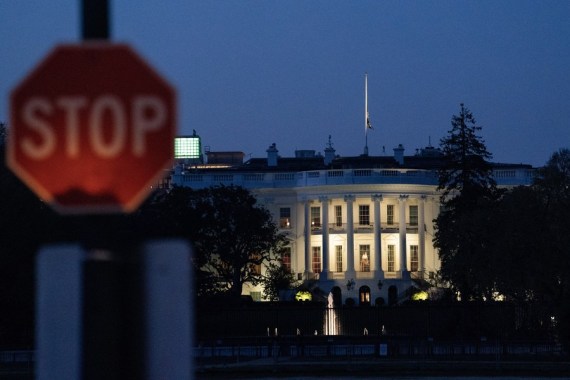Why Washington’s democracy gaslighting hardly works anymore
Elites at the Capitol Hill seem perfectly fine with leaving the country's woes unfixed and wounds unhealed. Meanwhile, they are busy with "democracy gaslighting" across the world.

In its latest stunt to woo countries to take sides and pledge allegiance, the United States has staged the second edition of a “Summit for Democracy.”
The gathering, more in form than in substance, ended as another pointless sequel to the first one in 2021, marred by controversies over Washington’s motives and qualifications as the host, particularly when its own house of democracy is on fire.
Just one day before the summit opened, a heavily armed shooter broke into a school in the U.S. state of Tennessee and shot dead six people, including three children. Earlier this year, the marathon election for speaker of the U.S. House of Representatives was also a constant reminder of how U.S. politicians get lost in partisan strife, leaving America’s body politic increasingly dysfunctional.
Elites at the Capitol Hill seem perfectly fine with leaving the country’s woes unfixed and wounds unhealed. Meanwhile, they are busy with “democracy gaslighting” across the world.
Yet to justify its agendas for world domination, the United States spares no effort to portray itself as a guardian of such common values as democracy and freedom, or in its own words, a “city upon a hill.”
In a nutshell, Washington needs a justifiable pretext for its hegemonic ambitions.
That involves decades-long systematic brainwashing of the public by capitalist and political elites, as well as press and academic communities, which culminated in Francis Fukuyama’s “end of history” theory put forward in the wake of the Cold War. Those persistent efforts proved effective, particularly in defining democracy as no more than competitive electoral politics.
Under a so-called “golden standard,” those governments who follow Washington’s way could be hailed as a “democracy,” while those who intend to take their own paths would be tagged as “heresies.” Of course, the standard is flexible, and its adoption selective.
Let’s say that even if some countries do have a one-person-one-vote electoral system, the United States would still be lecturing them on democratic values or even hatch regime change plots if they do not heed the orders from Washington.
However, Washington’s narrative on democracy does not and certainly cannot rid America’s governing institutions and its society of all sorts of deep-seated problems, most of which were brought about by the capitalist system. More importantly, the narrative itself is unraveling.
Slavoj Zizek, a Slovenian philosopher, once claimed that “the marriage between democracy and Capitalism is over” in his speech back in 2011 at an event of the “Occupy Wall Street” movement that protested against economic inequality and money politics in the United States.
The United States has been touting itself as the universal model of democracy, but its system is in fact “plutocratic rather than democratic,” British political commentator Carlos Martinez has said.
In fact, discussions in the United States and around the world on what is a real democracy have already been on the rise. And among all the factors that boost those meaningful debates are America’s own governance failures.






